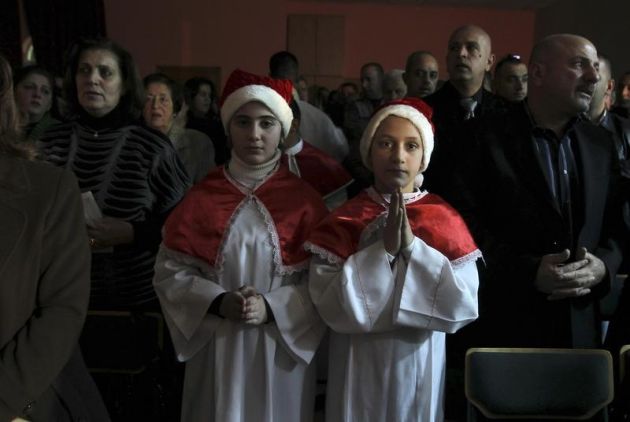Chaldean patriarch treads between Arab and Kurd; Christian, Muslim

Pope Benedict XVI has congratulated Archbishop Louis Raphael Sako of Kirkuk after he was elected the new patriarch of the Chaldean Catholic Church in Iraq, an overwhelmingly Muslim country that has sectarian and ethnic divisions that the patriarch seeks to breach.
The Chaldean Catholic Church has faced attrition and violence in the past 10 years when the U.S.-led invasion began to oust Iraqi dictator Saddam Hussein.
"I feel I have been called to a heavy responsibility, and I have a little 'fear," the new Patriarch told the Catholic Fides Agency. "We are facing many difficulties, in the country and even outside the country."
Sako added, "But with the help of Christ and the collaboration between the bishops we will live a unity that will allow us to rebuild the Chaldean house; a house that will always be open to other churches - starting with our Assyrian brothers - and our Muslim fellow citizens."
The Pope on Feb. 2 sent the letter to the Sako, the new Patriarch of Babylon of the Chaldeans.
Formerly the archbishop of Kirkuk, he was elected on Jan. 28 by the Synod of the Chaldean Church, meeting in Rome. The election process lasted four days and involved 15 Chaldean bishops.
The Pope wrote may, "his ministry both comfort the Chaldean faithful in the mother country and in the diaspora, but also the entire Catholic community and the Christians who live in the land of Abraham, and be conducive to reconciliation, mutual acceptance and peace for the Iraqi people.
Archbishop Louis Sako replaced 85-year-old Cardinal Emmanuel-Karim Delly of Baghdad.
Born in Zakho, Iraq on July 4, 1948, Patriarch Sako completed his primary studies in Mosul, before attending the local seminary of St. John, run by the Dominican Fathers.
Ordained a priest on June 1, 1974, he worked at the Cathedral of Mosul until 1979. Then he went to Rome, where he attended the Pontifical Oriental Institute, receiving his doctorate in Eastern Patristics. He later received a doctorate in history from the Sorbonne in Paris.
The Chaldean Church follows Eastern rites but it is in communion with Rome where its patriarchs meet traditionally for appointing bishops.
The new patriarch chose "authenticity, unity, renewal" as his patriarchal motto.
"The Chaldean church must be a sign of hope, witness and communion, despite the difficulties," noted the patriarch following violence it has faced following the war that began 10 years ago.
On the future of the Christian presence in the Middle East, Sako acknowledged, "the road ahead of us is rough and hard, but we can deal with it hoping in the Lord. We are a small flock, but we are His flock, and the number is not important. We can go ahead, in the places where we are."
Harry Hagopian an inter-faith advisor to the Catholic Bishops' Conference of England and Wales who is a columnist for the British-based think tank Ekklesia, said Sako's election will be good for the Iraqi church.
"The archbishop is viewed as a man of dialogue who is accepted by Arabs and Kurds in Iraq and has been a steadying force in Kirkuk," wrote Hagopian.
"A renowned polyglot and relatively young at 65, he might help strengthen the ties between the Chaldean community within Iraq and the larger Middle East and North Africa region and those in the West -- some of whom were trying to transfer the Patriarchal See from its traditional location in Baghdad to the USA."
Almost two-thirds of the remaining 500,000 Iraqi Christians belong to the Chaldean Catholic Church. Iraq's Christian population is estimated to have fallen by two-thirds since the allied invasion in 2003. Iraq has a population of some 31 million people.